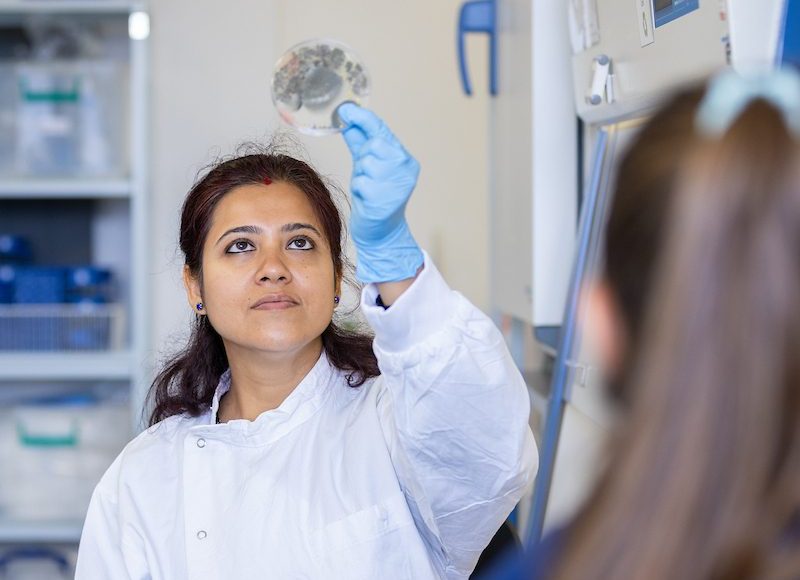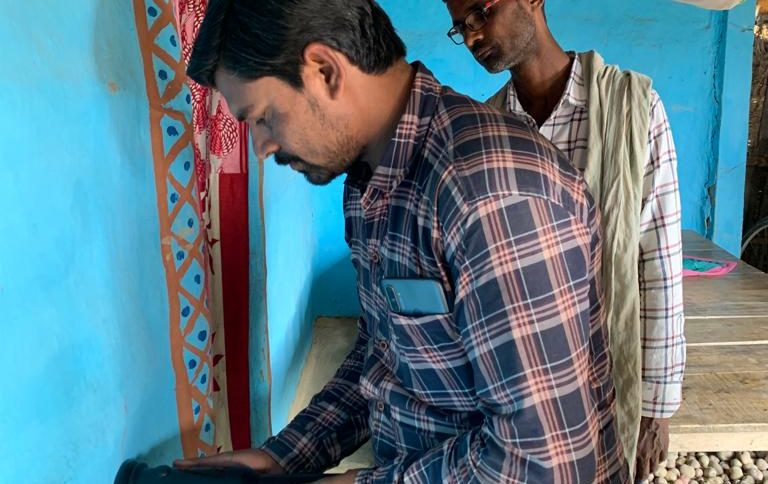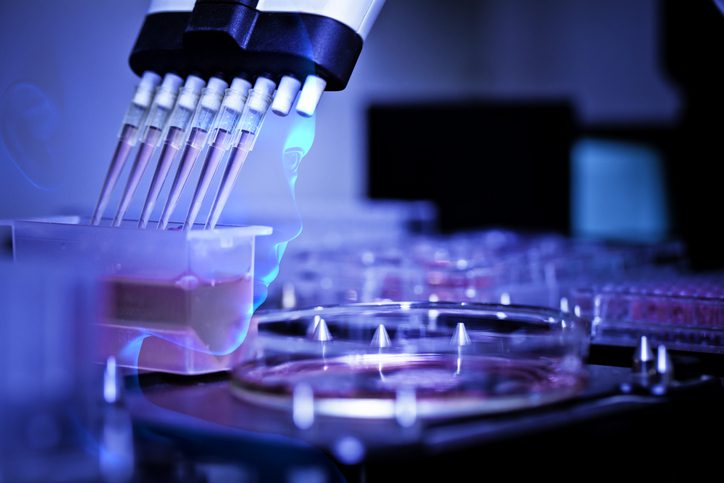- Find our latest Case Studies
- Our Platforms
Our Platforms
- Platform 1: Bioactives Library – Shaping novel antimicrobial products
- Platform 2: Hits to Leads – Developing new innovative antibiotics
- Platform 3: Organoid modelling – Enhancing drug discovery
- Platform 4: Advanced AMR Modelling
- Platform 5: Human Challenge – Small scale clinical trials
- Platform 6: Diagnostics
- Platform 7: Randomised Control Trials
- Platform 8: Mapping and Modelling
- Platform 9: Nanotherapeutics
- Platform 10: Antibody Humanisation
- Platform 11: Long-Acting Therapeutics
New report shows iiCON’s impact on regional infection R&D spend

iiCON has marked its fifth year of operations with the launch of a new report highlighting its significant impact over the last 12 months.
The consortium, which is led by Liverpool School of Tropical Medicine, is building on the North West of England’s world-leading strengths in life sciences to accelerate pioneering infection R&D.
Founded in 2020 with a £18.6m Government grant, iiCON has gone on to secure over £251 million in investment and create 770 North West jobs.
The consortium’s annual report, released this quarter, shows it has helped increase the region’s R&D infection spend to over £1billion over the last five years.
Working with a global network of almost 1,000 organisations, iiCON enables industry access to world-leading infection R&D facilities and expertise. It has supported 36 new products to market, with over 5 billion units of life-saving products and treatments reaching communities across the world.
Over the last 12 months, iiCON has been pivotal in the development of two pioneering centres where new technology is being leveraged to super-charge infection R&D in the Liverpool City Region – The Infection Innovation Technology Laboratory: iiTECH and The Liverpool Robotic Infection Research Laboratory.
The Liverpool Robotic Infection Research Laboratory is the UK’s first high containment Category Three Robotic laboratory being developed at Liverpool School of Tropical Medicine (LSTM). This £20 million facility is being delivered by iiCON and LSTM, with £10million funding from the Liverpool City Region Life Sciences Innovation Zone.
Equipped with liquid handling, robotic systems and analytical equipment, the Liverpool Robotic Infection Research Laboratory will open fully in 2027 and provide industry and academic collaborators with the containment and research capabilities to safely tackle high-risk global infectious diseases.
The ambitious new unit is part of the 10-year Liverpool City Region Life Sciences Innovation Zone programme which is expected to attract up to £800m public and private investment and create 8,000 new skilled jobs to the region.
Professor Janet Hemingway, iiCON’s founding director, said: “It’s a privilege to be marking five years as part of the thriving life sciences eco-system within the North West of England. Our recent annual report shows that iiCON’s activity has bolstered the region’s infection R&D spend to over £1 billion, which is testament to the synergistic power of collaboration.
“The consortium’s activity over the last 12 months shows our momentum is unabated as we forge new partnerships, deliver global projects, and continue to drive forward infection R&D – building on the outstanding capability within the Liverpool City Region
“We’re delighted to be marking this key milestone in our journey with our pioneering partners, collaborators, and supporters and look forward to continuing to work together to accelerate infection innovation.”
Alongside this key capital project, which will help to cement the North West ‘s position as a world-leading centre of infection R&D, iiCON has delivered several important global programmes over the last year.
These include launching clinical trials for a new vaccine for pneumococcal disease in Malawi; completing Phase 1 clinical trials for three new antibiotic treatments that are now progressing into later stage trials; supporting organisations working with next-generation technologies to shape the UK’s national response to Infection Transmission as part of an initiative funded by UK Research and Innovation (UKRI); and using novel technology through iiTECH to develop innovative new handheld sensor detectors to protect communities in Africa and Asia by monitoring insecticide use.
Steve Rotheram, Mayor of the Liverpool City Region, said: “The Liverpool City Region has been at the heart of global health innovation for more than a century – and iiCON is carrying that proud legacy forward into the future.
“In just five years, iiCON has contributed to our area becoming a powerhouse for life sciences, attracting investment, creating hundreds of high-quality jobs, and supporting the delivery of life-saving treatments to communities around the world.
“Our ambition is to invest 5% of our GVA in research and development by the end of the decade, putting us on par with some of the most innovative regions in the world, and iiCON is playing a vital role in helping us achieve that target.
“My mission is to make the Liverpool City Region the UK’s innovation engine – a place where discovery and opportunity go hand in hand. Their success is proof of what we can achieve when world-class science, collaboration, and ambition come together.”
iiCON also continues to play a key role in future-proofing the North West’s infection R&D capability. The Capacity Development Centre at Pembroke House is contributing to the development of the local, national and international workforce required for the future infection R&D translational research.
Dr Jonathan Hague, Chair of the Liverpool City Region Innovation Board, said: “Fuelled by a powerful collaborative commitment to save and improve lives, often in some of our most overlooked and undervalued communities, the strategic partnerships that iiCON has convened over the past five years have brought life to truly pioneering innovation and driven investment at an impressive scale.
“The consortium’s model, founded on collaborative innovation, leverages the synergy of strategic partnership – closing gaps, sharing knowledge, driving efficiency, overcoming barriers and bringing life to visionary new concepts and approaches. This approach aligns closely to the Liverpool City Region’s commitment to realising our North Star ambition to invest 5 per cent of our GVA in R&D by 2030.
“The LCR’s Asset-Based Cluster Development (ABCD) approach focuses on leveraging the region’s existing strengths and resources to foster economic growth and innovation. iiCON is a poster child for this approach. Its model of pioneering co-innovation has created an outstanding replicable template to scale other innovation assets across the Liverpool City Region – helping maximise our potential to be one of the UK’s leading lights in place-based innovation.”
Other initiatives to advance the sector’s skills and capabilities include working alongside regional collaborators to deliver SME focused Accelerator programmes, pitching events, and masterclasses. These are strengthening regional networks and helping innovative SMEs and start-ups access the expertise, facilities, and finance needed to progress their activity and grow regional infection R&D activity.
To find out more about iiCON and read the full report, visit: www.infectioninnovation.com/iicon-annual-report-2025


